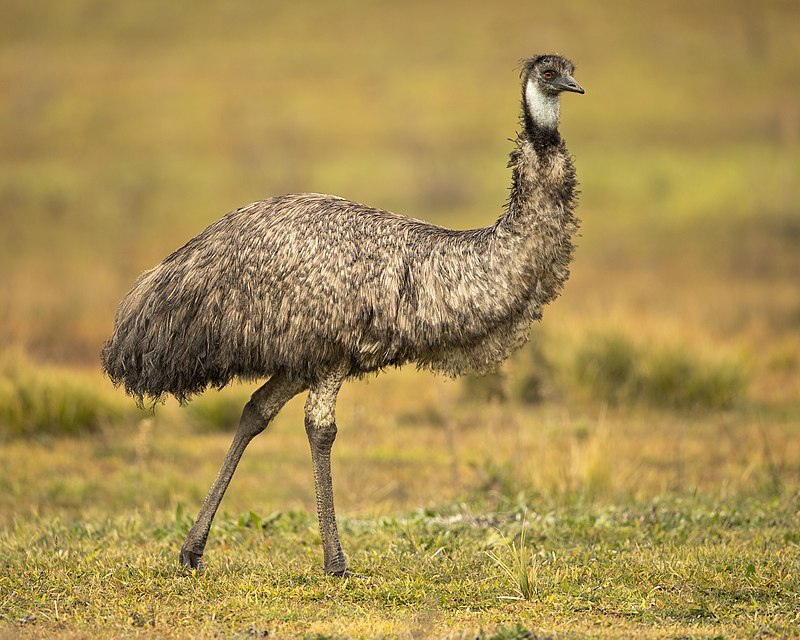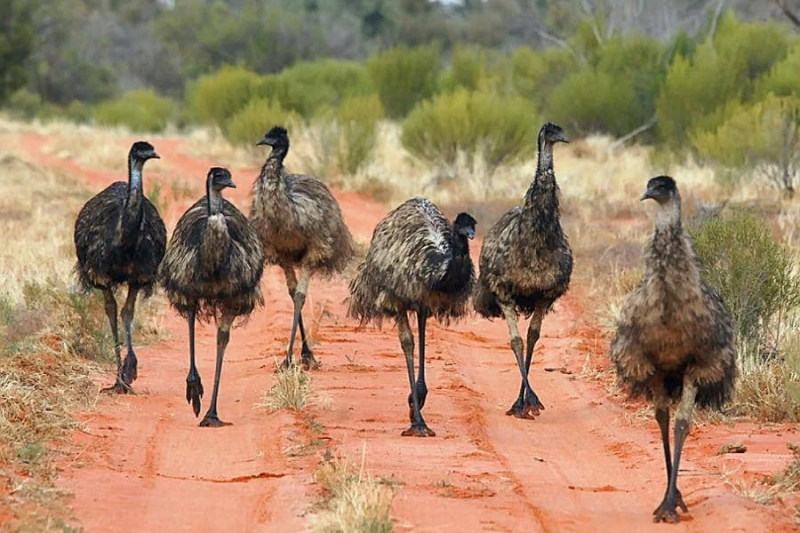Emu

The emu is the second-largest member of the ratites and extant species of bird in the world. They weigh between 40 and 132 pounds and are between 59 and 75 inches tall. They are native to Australia and can be found there in both savannahs and woodlands, however, they tend to stay away from drier areas. They have strong, long legs that allow them to run at speeds of up to 30 mph. Depending on their surroundings, their plumage might vary, but in general, it is brownish-beige with streaks of black and red.
Emus spend the day foraging and consuming seeds, grasses, fruits, and insects for food. Unlike most birds, only the males are in charge of building the nest and caring for the eggs. Also, female emus frequently behave more aggressively than male emus and may engage in physical conflict over prospective mates. Despite being considered a species of Least Concern, they are nevertheless in danger from habitat loss, car accidents, and invasive predators. Under the correct circumstances, emus' toe claws can eviscerate creatures, just like those of cassowaries and ostriches, but fatalities to humans are incredibly uncommon. More than 100 emu assaults resulting in a variety of injuries were reported in zoos, emu farms, and wild-animal parks in Australia alone in 2009, as well as elsewhere in the world.











